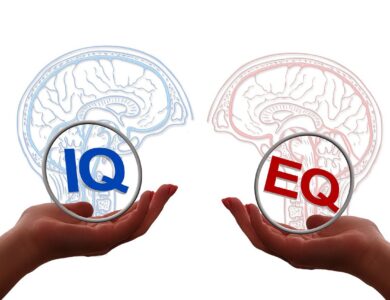
Introduction
Effective communication is the cornerstone of success, both in personal relationships and professional settings. Whether you’re delivering a presentation, negotiating a deal, or simply having a conversation, the ability to convey your message clearly and persuasively can make all the difference. In this article, we will explore the essential aspects of effective communication, share real-life examples, and provide actionable tasks to improve your communication skills.
Current Trends, Challenges, and Opportunities
With the rise of digital communication tools, effective communication has become more important than ever. Virtual meetings, emails, and instant messaging have created new opportunities for reaching and engaging with people. However, these platforms also pose challenges, such as miscommunication due to lack of tone or body language. Moreover, the fast-paced nature of digital communication can lead to misunderstandings and overlooked details.
The opportunity here is significant: by improving communication skills, individuals can foster better relationships, achieve greater success in the workplace, and resolve conflicts more effectively. Understanding the nuances of both verbal and non-verbal communication is essential for navigating today’s interconnected world.
Practical Tips, Strategies, and Advice
- Active Listening
- Example: In 2008, when Steve Jobs was discussing the iPhone with his team, he emphasized the importance of truly listening to feedback. By giving people the time and space to voice their opinions, he made better decisions and built stronger products.
- Action Step: In your next conversation, focus on listening without interrupting. Paraphrase what the other person said to confirm your understanding and encourage further discussion.
- Non-Verbal Communication
- Example: Barack Obama’s public speaking skills are a testament to the power of non-verbal communication. His confident posture, controlled gestures, and eye contact created trust and authority with his audience.
- Action Step: Pay attention to your body language in meetings. Ensure you maintain eye contact, stand or sit up straight, and use open gestures to show that you are engaged and confident.
- Clarity and Conciseness
- Example: Mark Zuckerberg, the CEO of Facebook, is known for his ability to speak clearly and concisely. When addressing large audiences or investors, he delivers his points with brevity, making complex concepts easy to understand.
- Action Step: When communicating, try to keep your message simple and to the point. Avoid jargon and long-winded explanations. Practice delivering your main points in 2-3 sentences.
- Empathy in Communication
- Example: During the aftermath of a natural disaster, leaders like Jacinda Ardern, former Prime Minister of New Zealand, showed empathy by acknowledging people’s pain and offering emotional support through their words. This built trust and compassion.
- Action Step: In challenging conversations, try to understand the other person’s perspective. Respond with empathy, acknowledging their emotions, and offering solutions that address their concerns.
- Ask Open-Ended Questions
- Example: In business negotiations, asking open-ended questions like “What are your biggest concerns about this deal?” can reveal more about the other party’s needs, leading to more productive discussions.
- Action Step: Practice asking open-ended questions in your next conversation. Instead of “Did you enjoy the meeting?” ask, “What did you think about the ideas we discussed?”
Conclusion
Mastering the art of effective communication requires practice, but the rewards are immense. By focusing on active listening, non-verbal cues, clarity, empathy, and open-ended questions, you can greatly enhance your communication skills. Whether you’re aiming to improve relationships, resolve conflicts, or achieve professional goals, these strategies will help you communicate more effectively and with greater impact.
Call to Action: How have you applied effective communication in your personal or professional life? Share your experiences in the comments, and let’s continue the conversation about how we can all improve our communication skills.



